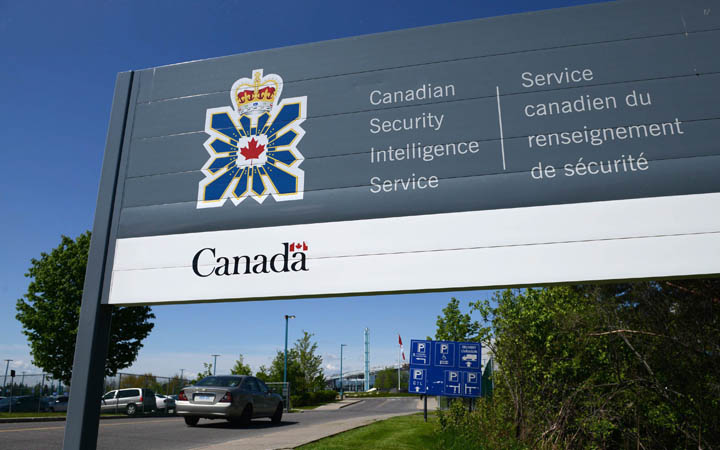Prime Minister Justin Trudeau’s government appears willfully blind to a “growing body” of intelligence evidence regarding China’s interference in Canada, the Conservative shadow minister for Canada-China relations said Friday.

MP Garnett Genuis, the Conservative member for the special committee on Canada-China relations, made the comments after Global News reported that Canada is a “permissive target” of China’s broad influence campaigns, according to reports from Canadian Security Intelligence Service (CSIS).
Intelligence experts say China is undermining Canada’s democracy by targeting elite politicians and businesspersons with “sweetheart” business deals and economic inducements. In this so-called “elite capture” strategy China’s Communist Party wins support for its foreign policy, experts said. A parliamentary intelligence committee review of CSIS warnings suggested Ottawa has been slow to respond to China’s threat.

Genuis told Global News that Canada needs to tackle national security threats posed by China’s interference with the same urgency and “comprehensive responses” that Ottawa has previously applied to the threat of terrorism.
“There is a growing body of evidence to suggest Canadians should be very concerned in general about foreign interference, and with the Chinese state in particular,” he said. “What looked like naivety actually looks more like willful blindness, because they have this intelligence and they have not acted on it.”

Get daily National news
Genuis and Conservative MP Dan Albas said the Global News analysis of China’s elite capture threat should be examined in the special committee. But the Liberal government, with the support of several NDP and Green MPs, ended the Canada-China relations hearings during the COVID-19 pandemic.
Global News asked Bill Blair, Canada’s Public Safety Minister responsible for CSIS, to comment on the government’s response to China’s interference.
“Our government’s top priority is keeping Canadians safe. Alongside our international partners, Canada’s national security agencies are constantly working to identify threats to national security including foreign interference and espionage,” a statement from Blair’s office said.
“We welcomed the report from the National Security and Intelligence Committee of Parliamentarians released earlier this year which studied this issue, and continue to remain vigilant for potential threats and to take appropriate measures to ensure the safety and security of Canadians.”

Experts told Global News not all politicians and businesses that trade with China are being influenced and cases of espionage and elite capture have yet to be proven in Canada. But evidence in countries such as Australia shows the Chinese Communist Party’s strategy is to patiently target and win support from elites abroad using the nation’s growing wealth, experts say.
Charles Burton, a former Canadian diplomat in China, said he agrees that China’s Communist Party has obtained significant influence in Canadian affairs through elite capture. And he also agrees with Genuis’s assessment that Ottawa has been blind to China’s interference.
“I think there is a tendency among our elites to downplay the significance of their collaboration with the Chinese state, and there is a tendency of believing the collaboration is for the greater good of Canada’s economy,” Burton said. “But there is a lot of willful ignoring of information that could be relating to matters that are at least conflicts of interest, if not unlawful.”
- ‘Alarming trend’ of more international students claiming asylum: minister
- TD Bank moves to seize home of Russian-Canadian jailed for smuggling tech to Kremlin
- Why B.C. election could serve as a ‘trial run’ for next federal campaign
- Justin Trudeau headed to UN Summit of the Future amid international instability
Canada’s bipartisan intelligence committee review recommended the government examine Australia’s laws that are designed to counter China’s interference. Australia now requires current and former politicians to register any foreign business interests.
Canada currently has no such laws, which makes it difficult to know who could be supporting the Chinese Communist Party for hidden financial reasons, experts told Global News.
Burton said Australia’s counter-espionage transparency laws have already led to greater accountability. In one example, he said a former Australian trade minister dropped an $880,000 per year consulting gig for a Chinese company, after Australia’s new laws came into effect.
“Sunshine is the best disinfectant,” Burton said. “So the idea that people who were responsible for important files should be subject to scrutiny for potential conflict of interest when they leave government, is good for Canada.”
Genuis said if the Canada-China relations special committee restarts, his party wants to examine potential elite capture in Canadian business and politics, the integrity of Canadian academic institutions, theft of Canada’s high-tech and intellectual property, and foreign interference in diaspora communities in Canada.
“We need to look at the vulnerability of our communities to pressure and bullying from state actors,” Genuis said. “But the government, unfortunately, isn’t taking this seriously. If they don’t start to, I think we will see electoral consequences.”








Comments